Results not typical.

 Some you are aware that I’ve never dieted. At least not calorie restriction with the goal of weight loss.
Some you are aware that I’ve never dieted. At least not calorie restriction with the goal of weight loss.
When I was a teenager my doctor prescribed an elimination diet to see if I had food allergies. And, it turns out, I do. We found that I’m allergic to wheat and dairy. Years later I also learned that I have a yeast intolerance.
So, yes, there is some kind of restriction to what I eat. But there’s a direct cause and effect to my food allergies. If I eat wheat or dairy, I get a runny nose and my throat itches and I’m all around miserable.
Also, that misery isn’t just for a day. It takes at least three days for an allergic reaction to work it’s way out of my system completely. Which makes sense, becasue that’s about the amount of time it takes for food to work it’s way through the intestines.
But there is one way I can kinda relate with some dieters, through my struggles with exercise. I have Chronic Fatigue Syndrome. One of my symptoms is exercise induced fatigue.
“Exercise induced fatigue” means more than just tired after exercising. It means I feel bad while I’m exercising. And then bad the next day. And then bad the day after.
The badness I feel is also cumulative. The more I do it, the worse I feel. For a long time I actually thought the whole idea of “feeling better after exercise” was a myth people made up to try and convince everyone to get off their asses.
The good news is that, over time, I’ve found that slow and moderate movement is not as miserable as actual aerobic exercise. I’ve had to learn how to find a careful balance between increasing my stamina and not making myself sick.
Why bother to even move if it makes me feel so crappy? Well, I’ve had times in my life where I was sick enough that I started to waste (ie loose muscle mass). Struggling to walk or even just move is a scary place to be.
It’s important for me to be able to move around on my own. Call it a point of pride, but I will stubbornly hold off from using a walker or a mobility device until I have no choice.
So, even in the case of exercise, my experience is different than many of the stories I hear from those around me. I can relate with restricting my diet and struggling to get motivated to exercise but it’s more of a “cerebral understanding” than an “I’ve been there.”
The lesson I’ve learned from all of this is that the addendum at the bottom of those weight loss commercials that says “results not typical” is talking about ME. I’ve had to embrace my reality and say, “That’s not what I experience and I’m not going to let anyone make me feel bad about that.”
It’s a lesson I would wish on just about anyone. The realization that “typical” may not match your reality can really be liberating. So, now I lift my chin to the world and say, “I am not typical. And there is no shame in that.”








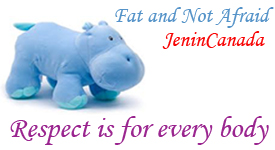




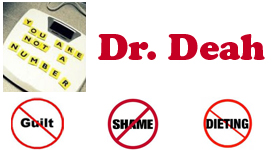



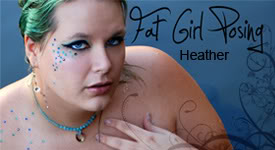


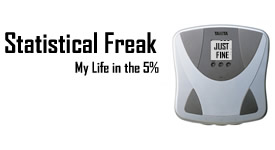
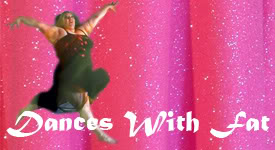
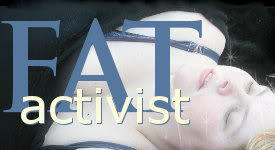
The human body is such an interesting machine. I can’t imagine that people still think that one method or idea applied across the board gets the same results everytime.
Score one for individuality, the best people are usually not typical.
dufmanno -
Thanks. I also think you are of the “best people.”
Good post. I miss your blog! The points you made about various aspects of FA made total sense to me!! This post included - it’s great that you have learned the best way to eat and move for your own body.
PS. I am still in shock that there were complaints made about your writing, especially the kerfluffle about being “diet-neutral”.
Karen -
Thanks for your support. If it’s any consolation, I post here about once a week.
I’ve found this really great home here in the FFF community. Its kinda nice sharing the spotlight and being around people that make me think.
I hate exercise, but I think it’s more because I’m not a fan of sweating. So, if you’re diagnosed with Chronic Fatigue Syndrome, is there anything you can do about it? What does your doctor recommend? It’s an interesting problem. Has there been a lot of research on it?
Peace,
Shannon
atchka -
My diagnosis is really a “we don’t know what’s wrong, so we’re putting you in this category.”
Is there a cure or a treatment? Not really. Treating CFS is very “shoot in the dark.” There’s a list of things you can try, most of which I have tried over the last 20 years.
Wiki : “Many patients do not fully recover from CFS even with treatment, and there is no universally effective curative option.”
Yes, there is ongoing research. There is a foundation for CFIDS (aka CFS) that I follow so I know if anything new has been learned.
While I would love to believe that one day there will be a universally accepted treatment for what ails me and a doctor eager to lead me in the direction of that treatment, I’m not holding my breath. So, “what I do” is accept that fact that I’m chronically ill and try to live my life.